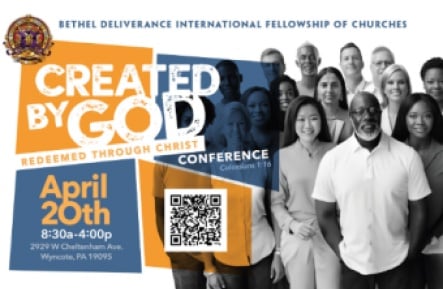
Mark Sanders
Mark is President of Harvest USA. He was appointed to this position in October 2022. Prior to this Mark served as Director of Discipleship for Harvest USA’s teaching staff. After finishing internships at both CCEF and Harvest USA, Mark Sanders joined Harvest USA’s Men’s Ministry in July 2015. Mark holds an M.A. in Counseling from Westminster Theological Seminary, Glenside, PA, and a B.A. in Communications & Integrated Media from Geneva College, Beaver Falls, PA. He also taught English in South Korea for five years, where he met his lovely wife.
Mark Sanders
Mark is President of Harvest USA. He was appointed to this position in October 2022. Prior to this Mark served as Director of Discipleship for Harvest USA’s teaching staff. After finishing internships at both CCEF and Harvest USA, Mark Sanders joined Harvest USA’s Men’s Ministry in July 2015. Mark holds an M.A. in Counseling from Westminster Theological Seminary, Glenside, PA, and a B.A. in Communications & Integrated Media from Geneva College, Beaver Falls, PA. He also taught English in South Korea for five years, where he met his lovely wife.



41st Annual Virginia Homeschool Convention
Exhibit at the Home Educators Association of VA (Gather Strength in Community Convention)

Colson Center National Conference 2024
The Colson Center National Conference is a gathering of people who want to be faithful in the time and place God has called them. Times like these require courage. As Tolkien once observed, we may wish we had lived to see different times, but wishful hoping is not a strategy. The real challenge is what we…

Created by God, Redeemed Through Christ Conference
Talking about Sexuality, Gender and the Power of the Gospel in the 21st Century Bethel Deliverance International Fellowship of Churches, in partnership with Harvest USA, invites you to attend this one day workshop focused on helping you more fully understand a biblical view of sexuality and how to effectively minister to men, women and families…

Raising Up a Sexually Faithful Generation – Briarwood Pres.
Description: This conference is designed to help give parents insight, practical help, and principles in raising children(0-18 years of age) as they face the sexual confusion of our culture. This is for soon-to-be parents, grandparents, and parents who have children of all ages. Each session will address how to engage and disciple our children in…

























Men, Don’t Engage in Warfare Alone
In our culture, the norm is that men don’t open up to each other. Our conversations typically revolve around safe topics, like sports, work, and home projects. But this is not the scriptural norm for men in the Church. Men need other men in their lives in real ways—to fight a real battle that has…


Serving Self or Serving Christ
We serve not so that people will serve attend to us in return, but because we are ultimately serving our King. We live for him first and foremost. To learn more about this topic, consider purchasing one of our resources, such as Sexual Sanity for Men by David White and What’s Wrong with a Little…



Doubting God’s Help in Our Time of Need
True heart change is never a one-step process. And prayer is not an exchange with God that automatically makes us feel a certain way. To learn more about this topic, consider purchasing one of our resources, such as What’s Wrong with a Little Porn When You’re Single? by R. Nicholas Black and How to Say…


You Are Always Being Influenced
It’s not enough to simply think about desires and beliefs in a vacuum. Our context and our circumstances strongly shape what our hearts believe and desire. To learn more about this topic, consider purchasing one of our minibooks, Explaining LGBTQ+ Identity to Your Child by Tim Geiger and Raising Sexually Health Kids by David White….

How Does Jesus Meet Us in Our Desires?
All pleasure was meant to point us to Jesus, the only one who can satisfy the deepest longings of our hearts. To learn more about this topic, consider purchasing Sexual Sanity for Men: Re-Creating Your Mind in a Crazy Culture and God, You, and Sex: A Profound Mystery by David White. When you buy these books…


Invisible Destruction: COVID-19 and Sexual Sin
COVID-19 has the real ability to destroy lives and families, but, in Christ, our true hope rests in the God who raises the dead. Sexual sin also has the powerful ability to destroy lives. But for all who have experienced the ravages of this sin, there is hope in the God who takes what was…


How Can Husbands Love Their Hurting Wives?
The majority of men who come to Harvest USA for help with sexual struggles are married. In this video, Mark Sanders shares several important truths that husbands need to know about humbly, patiently, and sacrificially walking alongside their wives in the long process of reconciliation and healing. You can also read the corresponding blog, Wives…



Why Isn’t God Answering My Prayers for Deliverance?
Many issues need to be addressed to effectively battle against sexual sin, but perhaps the most pervasive and overarching battle is a battle to kill pride and cultivate humility. To learn more from Mark Sanders, read his accompanying blog: Hope vs. Despair


Can I Please God When I’m Not Perfect?
We don’t just need Jesus to justify us, we need Jesus in order to do anything that is pleasing to the Father. To learn more, read Mark Sanders’ accompanying blog, Is It Temptation or Sin?

How Is Lust a Form of Coveting?
When we think of lust, we think of sexual temptation and desire gone too far. While in one sense that’s true, lust has more to do, not with the person you are looking at, but what you value in your heart. That beautiful person who has captured your eye? That’s not the object that really matters….




What Can Pastors Do When People Say They Feel Addicted to Porn?
With addiction being the verbal currency of just about any human struggle nowadays, pastors and church leaders will find themselves helping men and women who are trapped in addictive pornography struggles. In this video, Mark Sanders speaks to pastors and church leaders on ways that they can help. To learn more, read Mark’s accompanying blog:…




Losing Your Life While Losing Porn
Pornography is more than looking at sexual images; it’s an all-encompassing worldview that many men and women embrace to find relief from their struggles in life. But by turning to porn, they find deeper struggles. Jesus shows us a way out and forward: lay down your life. Lose it in order to find it. Click…


Is a Struggle with Pornography a Deal-Breaker?
Are you engaged? In a relationship and thinking about getting married? You’ve got lots to talk about—and be honest about with your future spouse. But the time to talk about these things is now, before you make your vows. And one critical thing to discuss is pornography and sexual sin. Click here to read more…